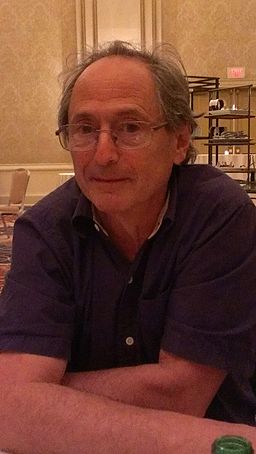
Michael Levitt, professor in cancer research and structural biology at the Stanford School of Medicine, won the 2013 Nobel Prize in Chemistry “for the development of multiscale models for complex chemical systems.”
“I think that progress is made by solving lots of little technical problems,” Levitt said in a University video in which he shared his news. “You never really get an ‘ah-ha’ moment and solve it all.”
Levitt shares the award with Martin Karplus, professeur conventionné at the Université de Strasbourg, France, professor of chemistry emeritus at Harvard and Arieh Warshel, a distinguished professor of chemistry at USC.
The three winners are credited for using computer models to make Newton’s classical physics “work side-by-side with the fundamentally different quantum physics.” In doing so they demonstrated the value of computer technology in the modern chemical lab.
Each winner will receive approximately $1.2 million.
News of Levitt’s Nobel Prize distinction comes just two days after Thomas Südhof, neuroscientist and professor of molecular and cellular physiology at the School of Medicine, won the 2013 Nobel Prize in Physiology or Medicine with Yale professor and former Stanford professor of biochemistry, James Rothman, and UC-Berkeley professor Randy Schekman Ph.D. ’75.
“This is our second Nobel prize this week,” said President John Hennessy at a press conference celebrating Levitt’s accomplishments. “I think great science and great people dedicated to their science is what the Nobel Prize is all about, and Michael is a great inspiration in that regard.”
Brian Kobilka, professor and chair of molecular and cellular physiology at the School of Medicine—and his former postdoctoral advisor, Robert Lefkowitz—won the 2012 Nobel Prize in Chemistry for their work on G protein-coupled receptors (GPCR), a large family of receptor proteins found on the surface of cells.
